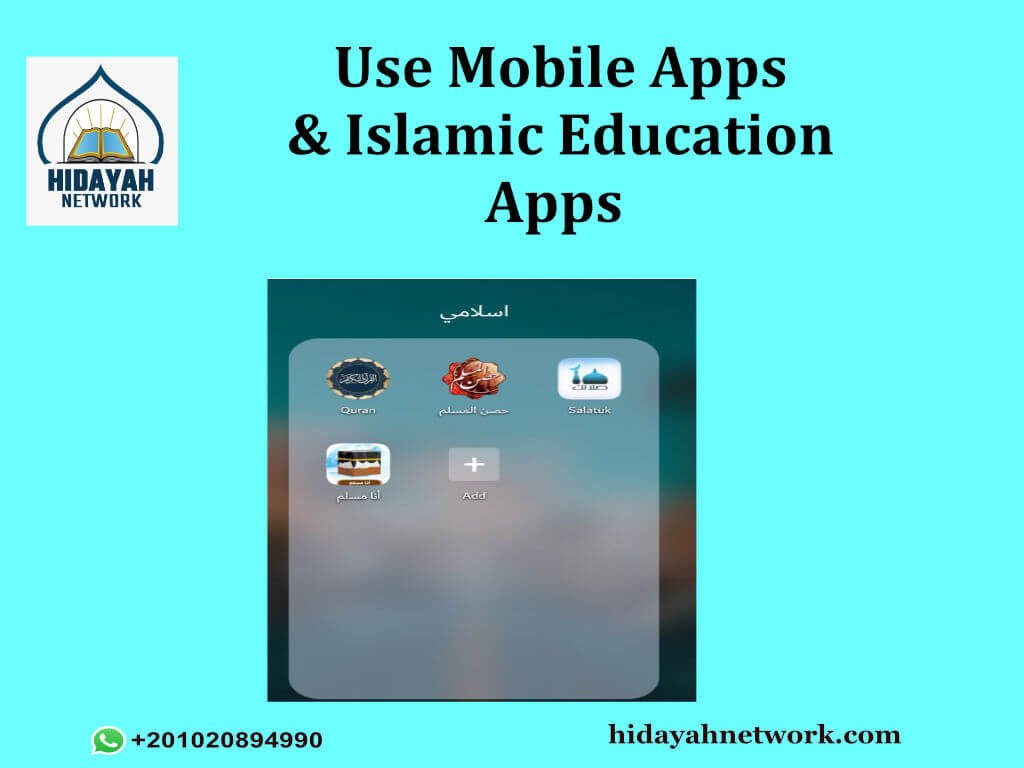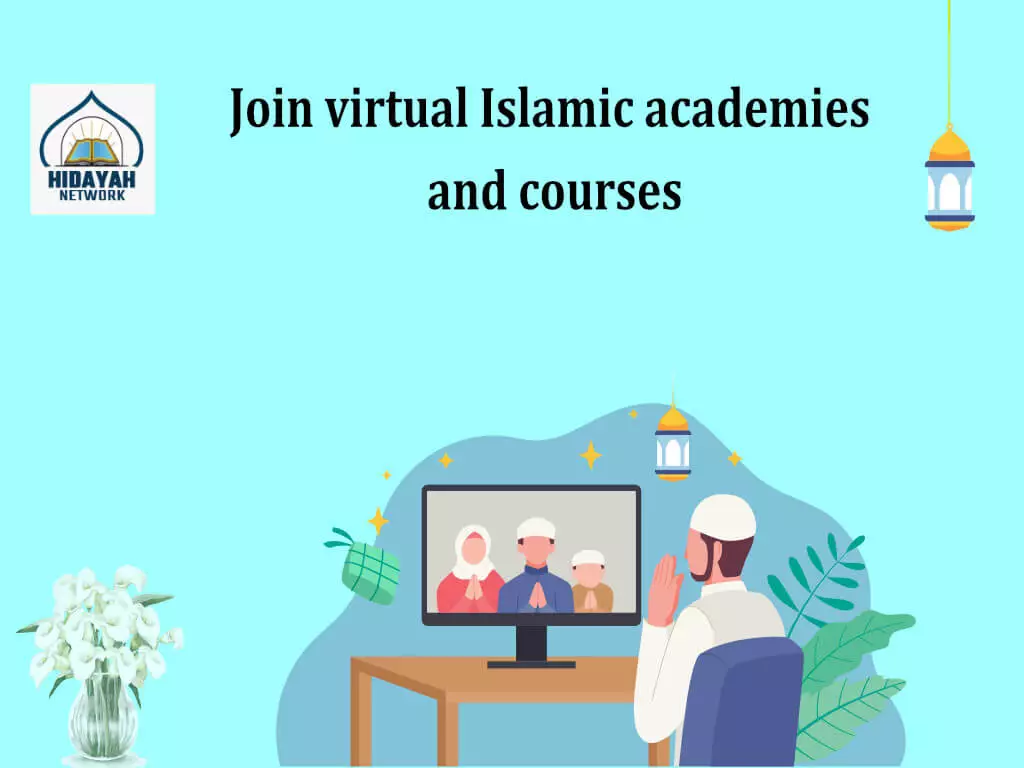Practical Ways to Seek Islamic Knowledge

- Hidayah
- Network
- | Role: Hidayah Network

Are you looking for practical ways to learn enough about Islam? Do you seek a firm foundation in the principles of the Sunnah and Quran? If you answer “yes,” you’re in the correct spot.
In this article, we explore several practical ways to seek Islamic knowledge, whether you’re at home or outside. You can use Islamic education apps, connect on social media, build digital libraries, take university classes, or join online courses for Islamic knowledge. Let’s explore these options to gain a better understanding of Islam.
Table of Contents
ToggleSeek Islamic Knowledge: Your Home Knowledge Journey
There are numerous useful ways to learn about Islam at home. Explore some of these options.
1. Use Mobile Apps & Islamic Education Apps

With technology, Islamic knowledge is more accessible than ever. Learn about the Quran, Hadith, and other important components of Islam through mobile and Islamic education apps.
Acquire Islamic books and literature, such as the Quran, Hadith collections, and books on Islamic history and theology, and dedicate time to reading and understanding them. Daily verses, translations, and explanations are common in these apps.
- Install Islamic mobile apps for daily Quranic, Hadith, and Islamic reminders on your smartphone. This is indeed the easiest way learning Islam for beginners.
- You can use “Muslim Pro” and “Quran Companion.” These might be your on-the-go spiritual companions.
Get 40% OFF Now!
2. Stay Connected with the Muslim world
Connecting with the global Muslim community is crucial in today’s internet world. It broadens your thoughts and knowledge. To extend your horizons, engage in conversation with Muslims from all cultures and backgrounds.
Social Media Engagement: Social media is an excellent way to study Islam and share Islamic knowledge and updates. Follow renowned academics and Islamic groups on Twitter, Instagram, and YouTube for informative content.
Embrace the Convenience of Podcasts and Webinars. The convenience of podcasts and webinars makes learning Islamic knowledge on the go. These audio and video formats cover Islamic topics in-depth and include expert Q&As.
Join Online Discussion Forums: Online discussion forums allow idea-sharing and question-asking. These Islamic knowledge forums can answer your questions. Moreover, these provide insightful talks.
3. Sign Up for Digital Libraries

Islamic manuscripts are widespread in digital collections. Free Islamic literature collections like “al-islam.org” and “Sunnah.com” let you read traditional and modern writings.
Bonus tip: Start Your Day with The Quran! When you start with the Quran, every day can get spiritual progress. Therefore, this holy book guides Muslims worldwide. Consequently, Quran provides useful insights and lessons. (Learning the context of Quranic verses and Hadith is *extremely important*)
4. Join virtual Islamic academies and courses

Virtual Islamic schools provide systematic, complete education. The “Islamic Online University” and “Hidayah Network” offer structured curricula. Moreover, they offer interactive sessions to improve your understanding of Islam. You can enroll your kid at our online Islamic school for kids to seek Islamic knowledge effectively.
Seek Islamic Knowledge: Your Outdoor Knowledge Journey
While seeking Islamic knowledge at home has benefits, going outside (Mosque/institution) also offers unique learning and spiritual development opportunities. Let’s explore some practical ways to embark on your outdoor knowledge journey.
1. Attend Classes at a Masjid/Mosque or University
Attending lectures at a nearby Masjid (mosque) or an Islamic university is one of the most conventional and efficient ways to learn about Islam.
These institutes frequently provide structured classes and lectures on a variety of subjects. It includes Hadith, Fiqh (jurisprudence), and Quranic studies.
Furthermore, it offers the opportunity to get knowledge from qualified scholars. You may interact with other learners face-to-face in a setting that is spiritually stimulating. You can get Islamic classes for adults from Hidayah Network as well.
Listen Attentively to the Jumu’ah Khutbah
Friday is a special day for Muslims, and the Jumu’ah Khutbah (Friday sermon) is paramount. Attending Friday prayers at a mosque and paying close attention to the Khutbah can offer insightful knowledge.
However, it serves as a helpful reminder of Islamic teachings. Imams frequently discuss current events while relating them to enduring wisdom.
Study Alongside a Scholar or Imam
Study under a scholar or Imam for deeper Islamic knowledge.
This one-on-one or small-group method enables individualized coaching and a more personal educational experience. You can research particular topics of interest and get immediate responses to your inquiries from a qualified mentor.
Take Arabic Classes
To understand the Quran and Hadith in its original form, one must have a solid knowledge of Arabic. All skill levels can take Arabic language classes at several mosques and Islamic institutions.
Learning Arabic will improve your ability to access Islamic materials. Also, it helps you become more familiar with the Quran’s original language. You can enroll in multiple institutions that teach How to learn Islam online with Arabic.
2. Attend Halaqahs & Seminars
Seminars and halaqahs, unofficial Islamic study groups, offer in-depth debate opportunities. In fact, they are true sources of useful knowledge. These gatherings tend to focus on certain Islamic subjects.
Additionally, these give attendees a forum to express their ideas and experiences. In short, you can establish a sense of community and mutual learning.
3. Buy & Read Islamic Books
Investing in your personal library of Islamic literature is a fantastic way to stay enlightened. You can delve into a variety of topics at your own speed. Here is a list of novels to take into consideration:
- “The Quran”: A fundamental, it is the main repository for Islamic knowledge.
- “Sahih al-Bukhari” and “Sahih Muslim”: Authentic collections of Hadith.
- “The Sealed Nectar” is a biography of the Prophet Muhammad (peace be upon him).
- “Fiqh al-Sunnah”: A description of Islamic legal principles (Islamic jurisprudence).
- Sheikh Yusuf al-Qaradawi’s book “The Islamic Awakening” talks about the revival of Islamic philosophy.
- Tariq Ramadan’s book “In the Footsteps of the Prophet” provides insights into the Prophet Muhammad’s life (peace be upon him).
- Muhammad Asad’s “The Road to Mecca” is an interesting account of a Westerner who converted to Islam.
By engaging in these outdoor opportunities, you can deepen your understanding of Islam. In addition, it embarks on a fulfilling journey and practical ways to seek Islamic knowledge.
These practical methods will guide your Islamic learning indoors or outside. Explore the range of Islamic wisdom using these approaches to enrich your understanding of Islam.
Importance of Seeking Islamic Knowledge – In the Light of the Quran
Islam is a knowledge- and wisdom-based religion. There are countless benefits of seeking Islamic knowledge in Islam that Allah told us in the Quran.
In several Quran verses, Allah commands us to seek knowledge, as seen in the verse:
“My Lord, increase me in knowledge.” (20:114)
“And whoever is given wisdom has certainly been given much good. And none will remember except those of understanding.” (2:269)
Seeking knowledge is also a duty upon every Muslim, according to the Prophet Muhammad (peace be upon him):
“Seeking knowledge is obligatory upon every Muslim.” (Sunan Ibn Majah)
You need a disciplined strategy that balances tradition, innovation, dedication, and practicality. Let’s explore the key rule for how to seek Islamic Knowledge practically:
Take Online Classes at Hidayah Network
Hidayah Network offers webinars and resources with competent professors. These sessions are encouraging and cover many themes.
You can also buy courses to memorize the Quran, learn Arabic, or grasp Islamic jurisprudence. Get free online Islamic classes from Hidayah Network. This mainly allows you to expand your understanding from home comfort.
Conclusion
In conclusion, starting to seek Islamic knowledge with our practical ways is easy now. First, learn with a pure heart and good intentions. Your journey becomes more significant. The Quran is a unique life guidance. Study and comprehend it to improve your life.
Learn about Islam from experts. They offer helpful advice. Further, learning should alter your life. Apply your knowledge regularly. Adventure learning is lifelong. Keep studying and persisting. It takes time.
Remember to ask Allah for forgiveness. Moreover, it cleanses your heart and improves comprehension. Remember to learn for yourself and to improve the world.
As the Prophet Muhammad (peace be upon him) said, “Seeking knowledge is something every Muslim should do.” So, keep learning and growing!
Most Important FAQs
The 4 sources of Islamic knowledge are Al-Qur’an, The holy book of Islam. Hadith: Teachings and practices of the Prophet Muhammad, Ijma (Consensus), and Qiyas (Analogy): Reasoning by comparing new issues to existing rulings.
In Islam, knowledge is categorized into religious (Ilm al-Din) and worldly (Ilm al-Dunya) knowledge. Religious knowledge encompasses Quran, Hadith, fiqh, and spirituality, while worldly knowledge includes secular fields like science and medicine.
The concept of knowledge in Islam brings countless benefits: Spiritual Growth, Guidance, Moral Development, Deeper Faith and Personal Growth.
To study Islam at home: Read Quran & Hadith, then read Online Resources. Buy and Read Islamic books and Join Online Classes: Enroll in online courses or join virtual classes.
Verse examples from the Quran that highlight the significance of knowledge seeking include:
“Allah will raise those who have believed among you and those who were given knowledge, by degrees.”
“And those who disbelieved would [then] wish that they had been Muslims.”
These verses highlight that knowledge is a means of elevation and guidance for believers, encouraging them to seek it.

About Author
